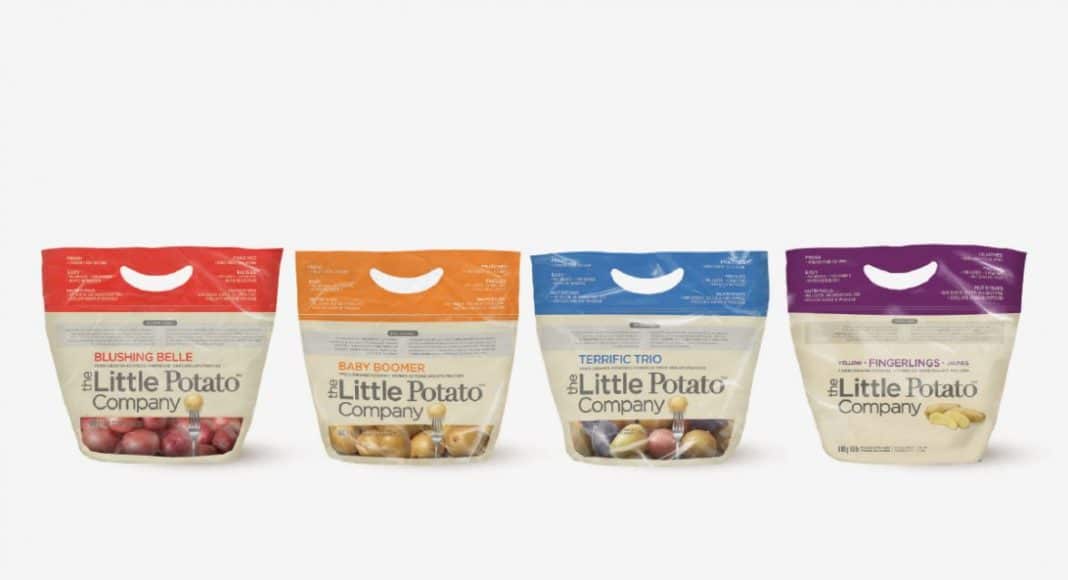[deck]There is a change transforming the Canadian potato landscape — it’s called branding, and it’s building momentum.[/deck]
Branding has become an increasingly important dimension of business marketing, as companies tussle to differentiate themselves from their competitors in a crowded marketplace. And many of those taking the step into branding say it’s a winning strategy.
The potato industry is no exception. Success stories include PEI Potatoes, Edmonton’s The Little Potato Company and Manitoba’s Southern Potato Co., which have all embraced branding and re-branding strategies as a way to optimize their customer reach. All three are continually working on brand and product awareness both domestically and internationally.
A marketing initiative of the Prince Edward Island Potato Board, PEI Potatoes is arguably the strongest potato brand in the country. For the past few years, the board has focussed on determining the equity of its potato brand and maintaining its strong position in the marketplace.
According to Kendra Mills, marketing director of the P.E.I. Potato Board, some large-scale research projects have helped increase understanding of customer awareness of PEI Potatoes, not only domestically but also abroad.
“Our research has shown that consumer awareness in the province and across Canada is quite high, with our brand at 96 per cent,” states Mills. “When surveyed, most people associate Prince Edward Island with beaches, golf, Anne of Green Gables and potatoes. This is how marketing by place of origin is also helping expand our brand awareness.”
Mills notes there is a highly competitive food landscape, with other products like bread, pasta and rice competing for a place in shoppers’ food baskets. As a result, the board has also been working hard to dispel myths and help consumers understand the nutritional value of potatoes.
The Little Potato Company is recognized as one of the most innovative potato marketers in Canada. According to Joanna Gietz, the firm’s marketing manager, The Little Potato Company has adopted a branding strategy that continues to open new doors, resulting in not only increased sales but also greater customer awareness across the country.
“Maintaining our brand is important,” says Gietz. “We also have new packaging, and are now expanding our marketing strategy through social media such as Facebook to offer more engagement with our customer base through nutritional information, recipes and comparative data.”
One of Manitoba’s largest potato operations, Southern Manitoba Potato is being transformed into Southern Potato Co. Re-branding efforts at the successful family firm are focusing not just on the company’s long history and rich heritage in the potato business, but exciting opportunities in the years ahead.

Marlon Kuhl, vice-president of fresh and chipping potatoes for Southern Potato, says that while they are very proud to be a family-owned and run business since 1960, they also want customers to know they are buoyant about the future of the company.
“Along with a new branding strategy, we have also adopted the positioning line of ‘Growing Partnerships’ to show our dedication to building and maintaining strong relationships in the industry,” says Kuhl.
Maintaining Leadership
Many in the Canadian potato industry are not only embracing branding and social media marketing, but are working hard to maintain leadership in the marketplace.
“We all need to build a voice around our brands,” explains Mills. “It’s important to remain focused on the brand because there are high expectations as social media keeps its popularity. We need to remain relevant to consumers and be engaged with our audience on a one-on-one basis.”
Today’s social media tools also provide good measurements of audience likes and dislikes as well as providing a way to measure marketing/product reach, which according to Mills are important gauges for determining brand/packaging acceptance.
Gietz agrees that once a brand is established in the marketplace, the work is by no means done. It’s just as important to take steps to constantly maintain that awareness. “Whether it is your brand or your product, you need to remain engaged with your consumer base,” says Gietz. “You need to remain on your toes, and have fresh and new marketing ideas to keep consumers buying our products.”
Kuhl notes that product quality is essential to Southern Potato’s brand as a family-owned grower and distributor of potatoes throughout North America. “With new specialty products coming on market such as fingerlings and creamers, we knew that strategic rebranding was essential to maintain and grow our presence in the industry,” he says.
International Avenues
As Canadian potato companies continue to embrace and focus on branding and marketing opportunities here are home, there are also some tantalizing prospects for increasing brand awareness at an international level.
For instance, the P.E.I. Potato Board has realized the value of co-branding with other partners to help strengthen the Island’s potato brand.
“PEI Potatoes has aligned with other agricultural-based industries such as beef producers and the seafood industry to come together and create the Island as a top culinary destination,” says Mills. “We have learned to market together because we produce some of the best food around the world.”
As an example, Mills points to the annual Shellfish Festival, which draws many international visitors to the Island each fall to sample P.E.I’s culinary delights, including potatoes.
The Little Potato Company is also creating new footholds abroad, thanks to its successful branding campaign. “Internationally we have opened some new doors as customers can now identify with our packaging and logo,” explains Gietz. “We are so excited to see success from our hard work and we plan to maintain and grow on this momentum.”
The main takeaway from all three industry specialists for successful branding is to know what makes you unique in the marketplace, and to use that to really stand out at the retail level. “It’s essential that consumers understand and know your brand and product offerings,” says Mills.











